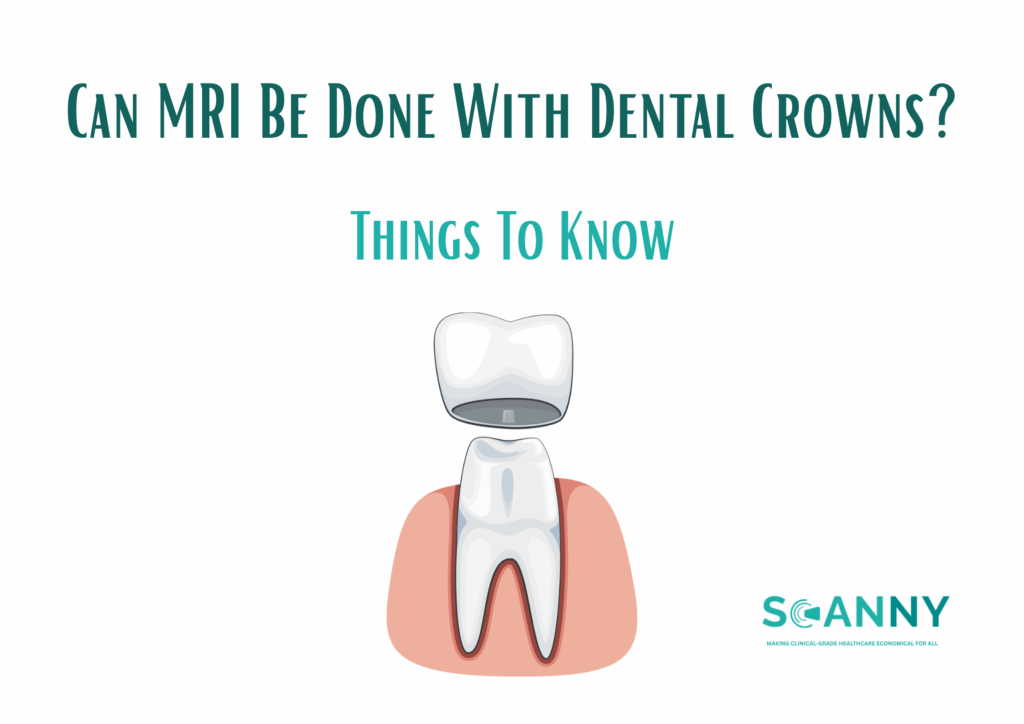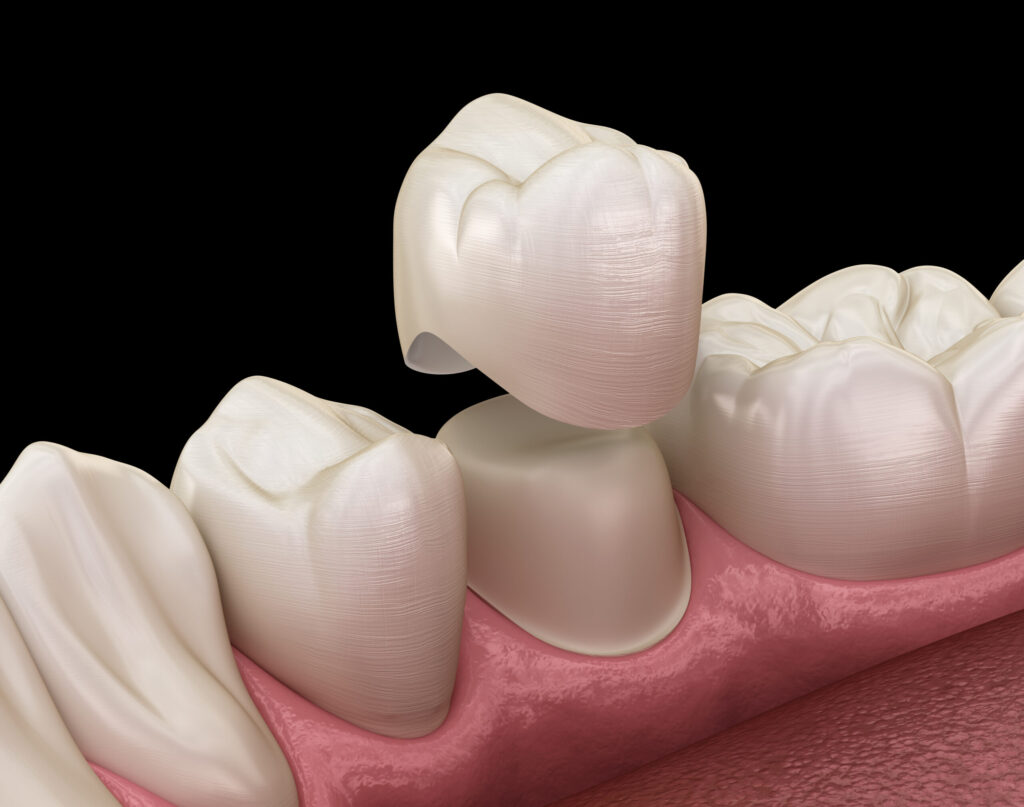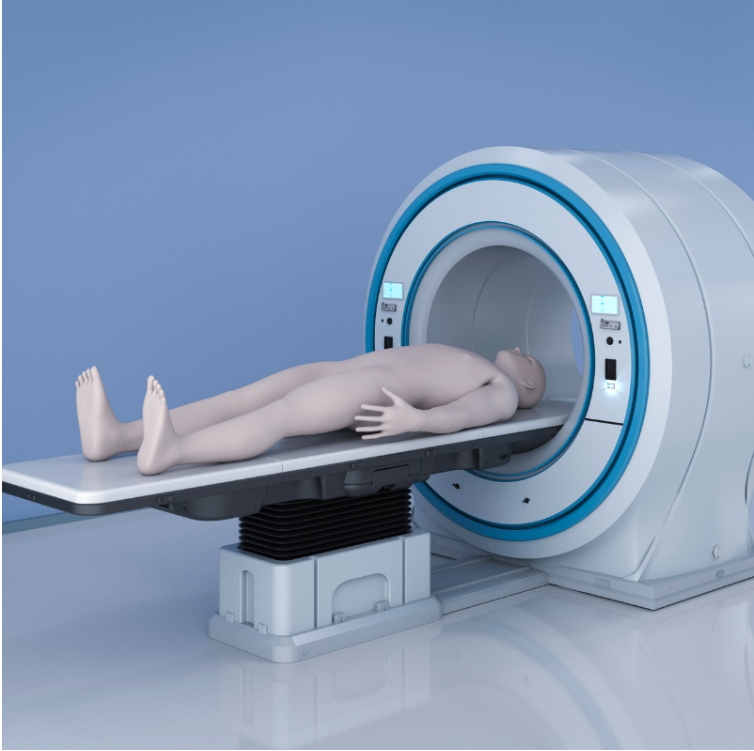You’re scheduled for an MRI scan, and suddenly you panic – what about those crowns in your mouth? Will they heat up? Get ripped out? Ruin the images?

Take a deep breath. Most people with dental crowns can safely get MRIs without any problems.
What Happens During an MRI?
An MRI machine uses powerful magnets and radio waves to create detailed pictures of your body’s internal structures. The magnetic field is incredibly strong – about 10,000 to 30,000 times stronger than Earth’s natural magnetic field. This sounds scary, but dental work rarely causes issues.
Why Crowns Usually Don’t Cause Problems?
Modern dental crowns are typically made from materials that play nice with MRI machines. Porcelain, composite resin, and zirconia crowns won’t react to the magnetic field at all. These materials are non-metallic, so the MRI magnet basically ignores them.
Even crowns with metal components are usually safe. Most contain non-ferromagnetic metals like gold or titanium alloys. These metals won’t be attracted to the magnet, won’t heat up dangerously, and won’t move during the scan.
The Metal Factor
Older crowns sometimes contain metals that can cause minor issues:
Nickel or cobalt alloys might create small distortions in images if they’re near the area being scanned. A crown in your mouth won’t affect an MRI of your knee, but it could blur images of your jaw or brain slightly.
Stainless steel crowns, often used temporarily or in pediatric dentistry, contain iron. The magnet pulls on iron, which could create some discomfort or slight movement sensation. Still, crowns are cemented firmly to your teeth, so they’re not going anywhere.
What About Heating?
Metal objects can heat up during an MRI, but dental crowns are too small to generate significant heat. Studies show that temperature increases in dental restorations during MRI scans are minimal – usually less than one degree Celsius. You might feel a slight warming sensation, but nothing painful or dangerous.

Image Quality Concerns
Metal in your mouth can create artifacts – blank spots or distortions – on MRI images. This matters most when doctors need clear pictures of your:
- Brain
- Face
- Jaw
- Neck
- Upper spine
For scans of other body parts, your dental work won’t interfere at all. If the radiologist needs pristine images of your head and your crowns are causing problems, they might adjust the scanning settings or use different imaging techniques to work around the distortion.
What You Should Tell Your Doctor?
Before your MRI, mention any dental work you’ve had. Your doctor or MRI technician needs to know about:
- Crowns and bridges
- Metal fillings
- Implants
- Braces or retainers
- Dentures with metal clasps
You don’t need to know exactly what materials are in your dental work. The MRI staff can assess the situation and decide if any special precautions are needed.
What Happens on Scan Day?
You’ll remove dentures, retainers, or any removable dental appliances before entering the MRI room. Permanent crowns and bridges stay put.
The technician might ask about any sensations in your mouth during the scan. Report any unusual warmth, tingling, or discomfort immediately. In the extremely rare case something feels wrong, they’ll stop the scan.
Most people feel nothing at all. You lie still, the machine makes loud knocking sounds, and 30-60 minutes later, you’re done.
Special Situations
Ferromagnetic dental implants: Some older implants used magnetic attachments to secure dentures. These need extra evaluation before an MRI.
Recent dental work: If you just got a crown placed within the past few weeks and the cement hasn’t fully set, mention this. The MRI probably won’t cause problems, but it’s worth discussing.
Multiple metal restorations: Lots of crowns, fillings, and bridges increase the chance of image artifacts but don’t make the scan dangerous.

Frequently Asked Questions
Can dental crowns be pulled out by an MRI machine?
No. Crowns are cemented firmly to your teeth. Even if a crown contains metal that responds to magnets, the bonding is strong enough that the magnetic field won’t dislodge it.
Will my crown get hot during the MRI?
The heating is minimal. Studies show dental restorations warm up by less than one degree during scans. Most people don’t feel anything at all.
Should I remove my crown before an MRI?
No, and you can’t. Crowns are permanent restorations that dentists cement onto prepared teeth. You’d need dental treatment to remove one, which would damage your tooth.
Can I get an MRI if I have gold crowns?
Yes. Gold is non-ferromagnetic, so it doesn’t interact strongly with MRI magnets. Gold crowns are perfectly safe during scans.
What about porcelain crowns with metal underneath?
These porcelain-fused-to-metal crowns are fine for MRI scans. The metal base is usually a non-ferromagnetic alloy that won’t cause problems.
Will my crowns ruin the MRI images?
They might create small distortions if the scan focuses on your head or neck. For scans of other body parts, they won’t affect image quality at all. Radiologists know how to interpret images with these artifacts.
Do I need a letter from my dentist before getting an MRI?
Usually not. Just inform the MRI staff about your dental work when you arrive. They’ll determine if any special precautions are needed.
Can children with stainless steel crowns get MRIs?
Yes. Stainless steel crowns are common in pediatric dentistry and don’t prevent children from safely having MRI scans.

What if my crown is really old?
Older crowns might contain different materials than modern ones, but they’re still almost always MRI-safe. Mention the age of your dental work when you check in for your scan.
Will the MRI damage my crown?
No. The magnetic field and radio waves don’t damage dental materials. Your crown will look and function exactly the same after the scan.
Final Thoughts
MRI scans are safe for people with dental crowns. The technology is used millions of times each year on patients with all sorts of dental work, and serious complications are extraordinarily rare.
Your health and getting an accurate diagnosis matter far more than minor image distortions. Doctors and radiologists know how to work around these issues. Don’t skip or delay a medically necessary MRI because of your dental work.
More Posts:
FDG Uptake in PET Scan | What These Images Really Show?
Does Your Whole Body Go In for a Brain MRI? All You Need to Know
